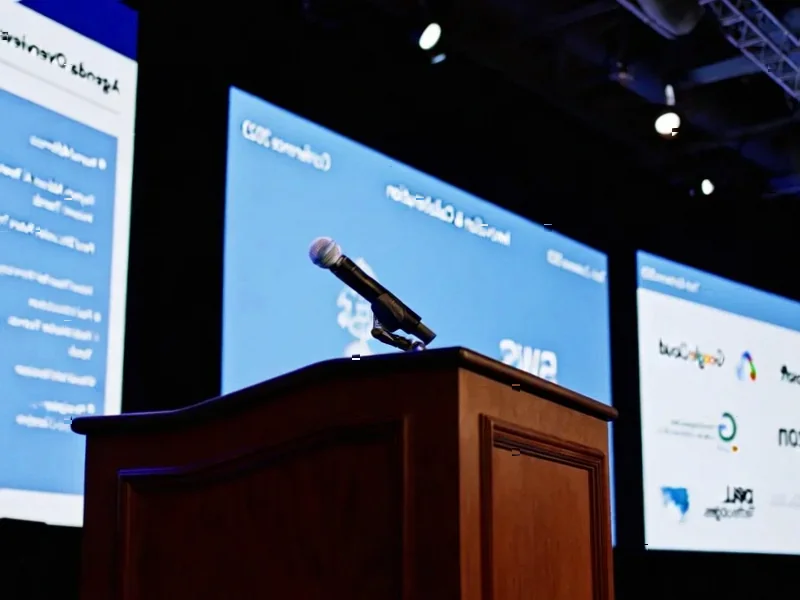According to TheRegister.com, former Intel CEO Pat Gelsinger has joined technology platform Gloo to develop Christian AI systems infused with religious values. The platform aims to connect the faith ecosystem while training large language models with Christian principles, drawing parallels to how Gutenberg’s printing press powered the Reformation. Gelsinger, who sees this as his mission to Silicon Valley, wants the platform to be acceptable across Christian denominations while avoiding theological and political divisions. The platform includes quality assurance measures to monitor how AI affects users’ spiritual health and “flourishing,” though the article questions whether LLMs’ documented issues with truthfulness can align with religious claims to absolute truth.
The Uncharted Market of Faith-Based AI
The emergence of specialized AI platforms targeting religious communities represents a significant market evolution that extends beyond Gelsinger’s personal mission. While the broader AI industry focuses on enterprise applications and consumer chatbots, faith-based AI occupies a unique niche that could command substantial market share within religious organizations. Churches, religious schools, and faith-based nonprofits represent a multi-billion dollar ecosystem that has historically been underserved by mainstream technology companies. This creates both opportunity and risk – while specialized AI could capture this market, it also faces the challenge of scaling across deeply fragmented theological landscapes.
The Technical Theology Problem
Creating “Christian AI” presents fundamental technical challenges that mainstream AI development doesn’t face. The core issue lies in how to encode religious values, moral frameworks, and theological consistency into models that fundamentally operate on statistical pattern recognition. Unlike commercial AI systems that can be optimized for measurable outcomes like user engagement or task completion, faith-based AI must navigate subjective spiritual concepts that lack universal agreement even within Christianity. The training data selection process becomes inherently theological – which biblical translations, denominational perspectives, and historical interpretations should inform the model’s worldview? This technical-theological intersection represents uncharted territory for AI development.
Competitive Positioning and Market Differentiation
Gelsinger’s venture enters a space where few established players exist, giving Gloo potential first-mover advantage in the faith-based AI sector. However, the competitive threat doesn’t come from other Christian AI platforms but from general-purpose AI systems that religious organizations might adapt for their needs. Companies like OpenAI and Google could easily develop faith-oriented versions of their models with minimal investment, leveraging their superior technical infrastructure and larger training datasets. Gloo’s differentiation strategy appears to be authenticity and theological alignment, but whether this creates sustainable competitive advantage depends on whether religious consumers prioritize faith-specific features over technical capabilities.
The Implementation Risks Nobody’s Discussing
Beyond the theological questions, faith-based AI faces practical implementation risks that could limit market adoption. Religious organizations, particularly smaller congregations, often operate with limited budgets and technical expertise. The cost of implementing and maintaining AI systems may prove prohibitive without clear demonstrable benefits. Additionally, there’s the risk of creating dependency – if churches increasingly rely on AI for sermon preparation, counseling guidance, or religious education, what happens when the technology fails or produces theologically problematic outputs? The liability questions alone could make religious institutions hesitant to adopt AI for core spiritual functions.
Broader Industry Implications
Gelsinger’s move signals a broader trend toward specialized AI verticals that could reshape the entire technology landscape. If faith-based AI proves successful, we should expect similar specialized platforms for other ideological communities, political movements, and cultural groups. This specialization trend represents both fragmentation and maturation of the AI market, moving beyond one-size-fits-all models toward purpose-built systems. However, it also raises important questions about algorithmic echo chambers and whether specialized AI will reinforce existing beliefs rather than fostering understanding across different worldviews. The success or failure of Gloo could determine whether other high-profile tech leaders pursue similarly niche AI applications.
Long-Term Market Outlook
The faith-based AI market’s long-term viability depends on solving fundamental challenges that extend beyond technical implementation. The most significant barrier may be theological resistance from religious traditions that view AI-assisted spirituality as fundamentally incompatible with divine inspiration. However, if Gloo can demonstrate tangible benefits like increased engagement, better religious education outcomes, or more effective pastoral care, the market potential is substantial. The key metric to watch will be adoption rates among mainstream religious institutions rather than niche communities. If major denominations embrace AI tools, it could validate the entire category and trigger significant investment in religious technology innovation.




